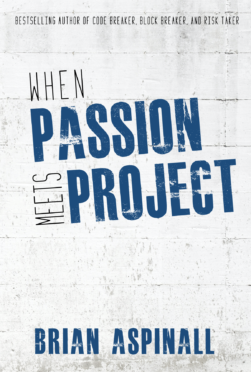Which better describes you as an educator? The Sex Pistols or The Clash.
What I mean to ask is, are you a “punk” leader? Do you follow all of the rules and regulations outlined by the powers beyond? Do you still make decisions based on fear? Do you punish the entire group because you found something inappropriate on one of the iPads? Much of what governs us as teachers today was developed in the 20th century.
Or are you the type that makes decisions base on the best interest of the students, in the moment, regardless of the outcome.
For the most part, punk took root in local scenes in the 1970s that tended to reject association with the mainstream. (http://en.wikipedia.org/wiki/Punk_rock)
What does this mean? Well for starters, do you still conduct “lessons” that have been prescribed many many years prior because “your job calls for it”? What really is important and what do you really want to “teach” with these lessons?
No one ever changed the world without first being labelled a troublemaker.
I encourage you to try some “punk”. Take some risks. Go outside the norm. Do something different. Let go.
It can be quite liberating and fulfilling to learn alongside students. Become a co-learner.
As I write this post I think of those in my twitter PLN I consider teacher leaders – many of whom I will see again at #bit14 and #edcampswo this week. I often compare myself to them and wonder if others think the same of me – am I a punk leader? Or even a leader at all? I have a high regard for may Ontario Educators on twitter and I love how so many continue to rock the boat. How else can we be change makers?
I think today’s punk teachers are tomorrow’s system leaders.
From the Ontario Leadership Framework:
What is leadership? What does effective leadership look like? What role does leadership play in the education setting? Most importantly, in the midst of day-to-day pressures, how can leadership practice help us to do more with less, streamline and focus our efforts, and achieve our practical goals?
School leaders are pivotal to the development of excellent teaching, excellent schools and ultimately, enhanced student achievement and well-being.
System leaders play an essential role by putting in place supportive system practices and procedures for school leaders and providing system-wide leadership.
So, are you a classroom leader, school leader or system leader? Don’t just be a fan, be a rock star!
http://www.education-leadership-ontario.ca/storage/6/1380680840/OLF_User_Guide_FINAL.pdf


 For all the kids who grow up in a small town and think they don’t stand a chance. You do. I was once that kid.
For all the kids who grow up in a small town and think they don’t stand a chance. You do. I was once that kid.
I absolutely think that systems need people who run ahead of the pack, testing boundaries and going beyond the prescriptive. And I think that people who do this can be exceptionally valuable, both to the system and across systems. The teachers testing boundaries are the reasons that things move forward in a system. They are vital to progress.
In informal leadership roles, “punk teachers” get others thinking differently and trying new things. It’s fantastic. I do think that when a “punk teacher” moves into a more formal leadership role, it means that the way they go about looking to make change shifts. There is still the pushing and testing boundaries, and there is still a lot of challenging and making others uncomfortable with new ideas. But there is also the realism that comes with the responsibility of helping everyone in a system – including those who are reluctant – to move forward. So a different kind of pushing is needed, and while the rules and boundaries are still challenged, it might be in a completely different way than it was in the classroom. It’s a quieter influence that has a different, but still important, value in moving people forward.
I was told last year that I was so far in front I was irrelevant. This was by a superior.
Truth is, I would love NOT to be a punk.
Great article.
Wow, interesting perspective. Leaves me with something to ponder